Index
15.07.2024: Technology Field APA at the Jugard+Künstner Robotics Center
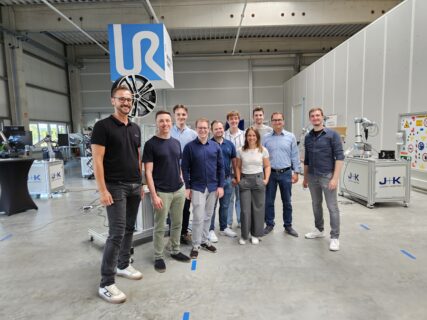
On July 15, 2024, the Technology Field “Automated Production Systems” (TF APA) of the Chair of FAPS visited the Robotics Center of the company Jugard+Künstner in Altdorf. The visit provided in-depth insights into current robot applications and technologies.
The visitors toured various robot applications with Mr. Tomasz Humiennik (left). The robots from Universal Robots, which are known for their flexibility and ease of programming, were particularly impressive. These robots were demonstrated in various production processes and left a lasting impression on the visitors.
Another highlight was the demonstration of mobile robots that can operate autonomously in production environments. The integration of these mobile robots with fixed robot systems and production machines demonstrated a seamless and efficient production process.
The visit ended with a discussion on the challenges and trends in robotics. The participants agreed that the visit provided many new ideas and approaches for their own research and practice.
The visit to Jugard+Künstner was a great success and will certainly lead to future collaborations and further innovations in the field of automation. Many thanks to Jugard+Künstner for the impressive insights and hospitality.
01.01.2024: Research project “FORSocialRobots” launched
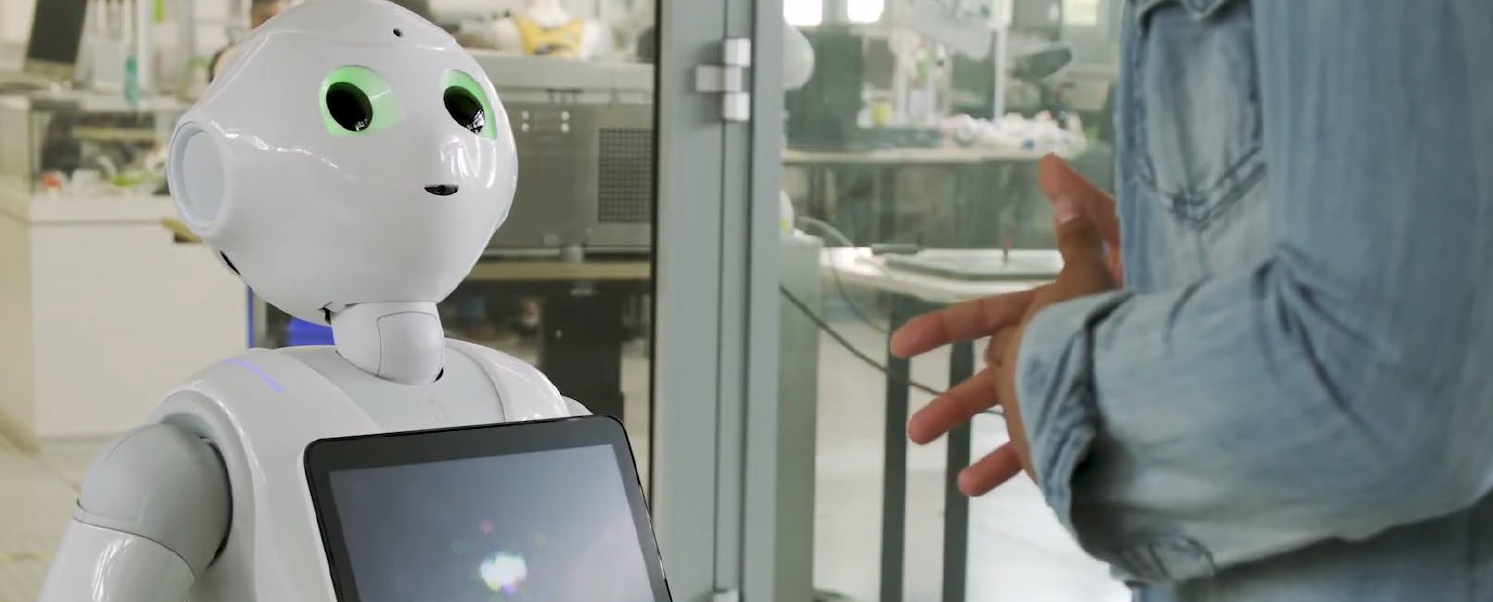
Robotics is developing into a key technology for value creation, improved working conditions and support across all application domains in industry, the service sector, medicine and care, as well as in the private sphere. Wherever humans and autonomous technical systems should and want to cooperate, socially intelligent and adaptable interaction is crucial for pleasant, efficient and accepted collaboration between humans and machines. There is therefore enormous potential in the field of social robotics in particular, which will have a decisive influence on the success of robotic applications in the future.
The Bavarian Research Foundation is therefore funding a large research network FORSocialRobots on the topic of social robotics from 2024. In this project, many of the relevant Bavarian players from industry, application and research will jointly research important issues in social robotics and profitably transfer findings into a wide variety of robotic applications.
Unsolved challenges in the field of social robotics lie in the autonomous interaction of robots with humans and the design of goal-oriented and accepted holistic social communication and cooperation between robots and humans. It must be ensured that communication is as natural as possible and does not have a frightening effect on humans. The complexity of social interaction and communication also poses a challenge in terms of technical implementation. In addition to the currently limited technical functionality of the robots, further challenges currently lie in the high costs of adapting socially appropriate behavior in a wide variety of complex application scenarios.
The consortium’s vision in FORSocialRobos is for humans and robots to work together in flexible teams in all areas of daily life in a goal-oriented manner and for new robot applications to be realized in the shortest possible time. The FORSocialRobots project therefore aims to make a decisive contribution to improving the social capabilities of robots in six relevant fields of application of robotic applications (inspection, logistics, production, service, retirement home and dementia center) and in five scientific sub-projects (architecture of social capabilities, social situational communication, socially adaptive and proactive interaction, simulation and validation of socially cognitive robots in the digital twin and human-robot interaction in the work context), thereby increasing their effectiveness and acceptance among potential users and supporting completely new technical developments.
The project is scheduled to run for three years. The project consortium consists of research institutions, applied research institutions, companies and users, who together have the know-how to research robots physically and in terms of software, as well as to implement suitable use cases in an exemplary manner, taking into account ethical, legal and social implications (ELSI). Prof. Jörg Franke is the spokesperson for the research network and the Chair of Manufacturing Automation and Production Systems FAPS at Friedrich-Alexander-Universität Erlangen-Nürnberg, which he heads, is responsible for coordinating the network. Dr. Sebastian Reitelshöfer is also responsible for the sub-project architecture of social capabilities at the FAPS Chair. Other participating chairs and research institutes are the Processing Technology division of the Fraunhofer Institute for Casting, Composite and Processing Technology IGCV and the Smart Sensing and Electronics SSE division of the Fraunhofer Institute for Integrated Circuits IIS. Dr. Julia Berger from Fraunhofer IGCV is responsible for the social situational communication sub-project. At the Chair of Human-Centered Artificial Intelligence HCAI at the University of Augsburg, Prof. Dr. Elisabeth André is responsible for the socially adaptive and proactive interaction sub-project. At the Chair of Production Informatics PI at the University of Augsburg, Prof. Dr.-Ing. Johannes Schilp is responsible for the sub-project simulation and validation of socially cognitive robots in the digital twin. Prof. Dr. Cornelia Niessen is responsible for the sub-project Human-Robot Interaction in the work context at the Chair of Psychology in Working Life PiA at Friedrich-Alexander-Universität Erlangen-Nürnberg.
13.12.2023: Andreas Selmaier successfully completes his doctorate.
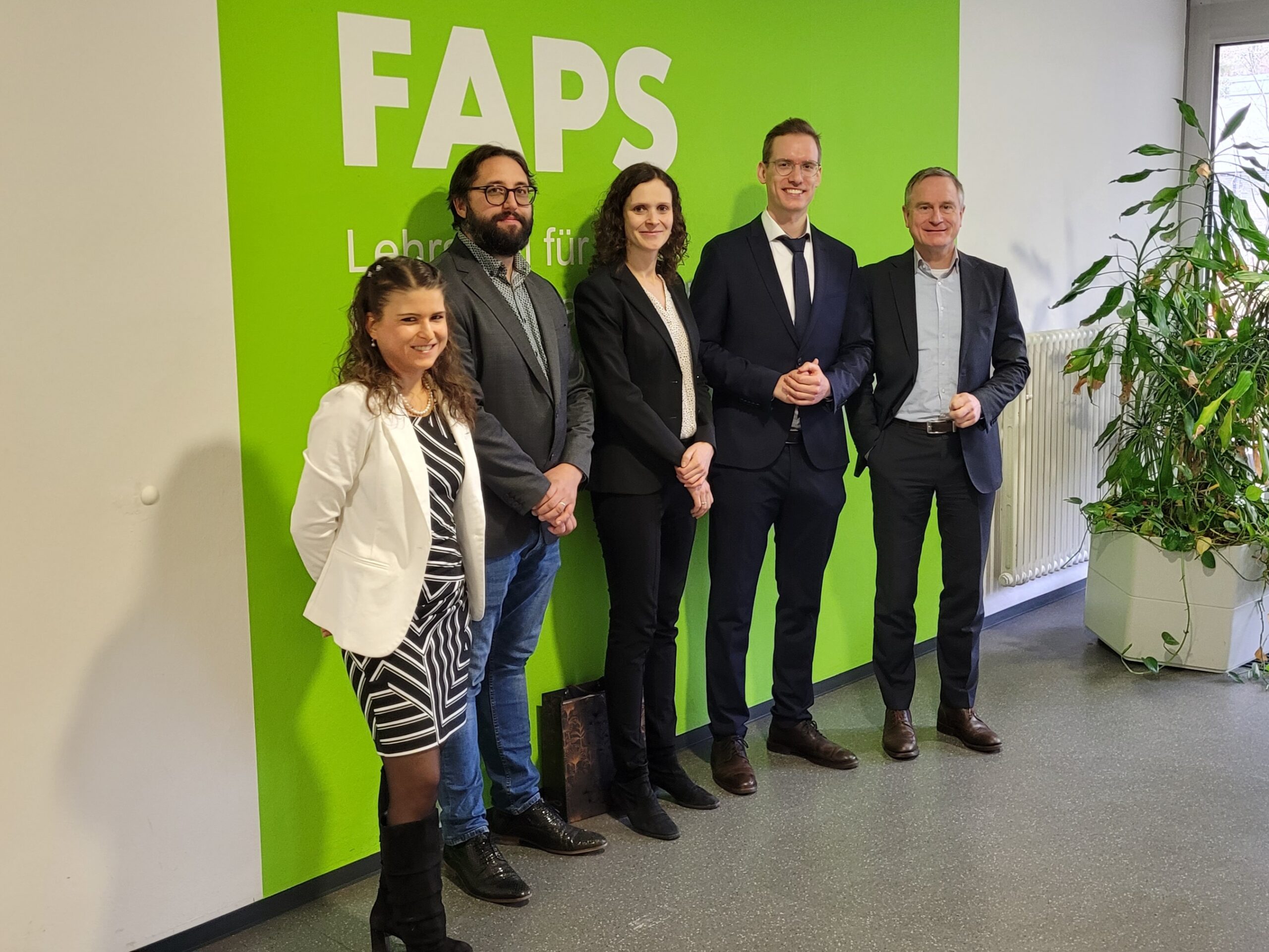
Digital technologies from the Internet of Things, cyber-physical production systems, the cloud and artificial intelligence are opening up new potential for product and process optimisation in the manufacturing industry. In addition to improving the classic target parameters of time, quality and costs, companies are also striving to increase flexibility and responsiveness with regard to new business models and external influences through digitalisation. The complete digital transformation in the production environment, which is characterised by a heterogeneous plant and system landscape, requires not only technical but also cultural change. Due to rapidly developing technologies, companies and employees are required to have a strong willingness to change and a high level of adaptability and innovation in addition to maintaining core production processes. In view of this inherent social and technical complexity, the implementation of digital transformation poses challenges for manufacturing companies.
In this context, Andreas Selmaier has investigated whether the complex transformation process can be implemented in a comprehensive and application-agnostic manner using a method-based process model. The study examines practical problem characteristics of digitalisation in the production sector, the formulation of a consistent process model and its methodological design as well as the validation of the described solution approach in industrial application scenarios. The successful implementation of six digitalisation solutions from the technology areas of Internet of Things, data analytics and cloud computing demonstrate the correctness and applicability of the methodology, which contributes to systematic and sustainable digitalisation in manufacturing companies.
With the oral examination on 13.12.2023, Andreas Selmaier successfully completed his doctorate with the title “DMAICS cycle for digitalisation in manufacturing companies”.
08.12.2023: Second, updated edition of the handbook “Mensch-Roboter-Kollaboration”
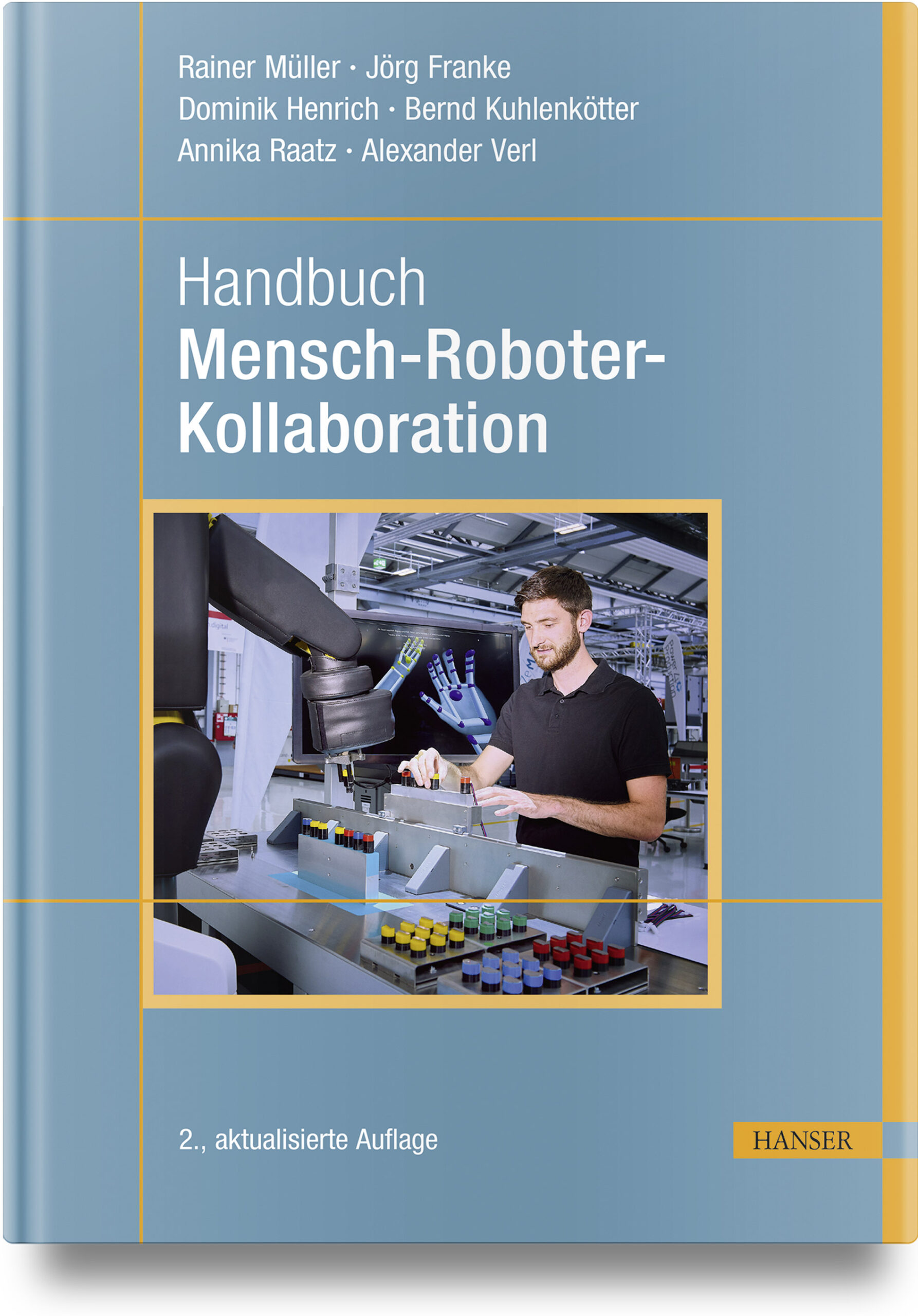
We are delighted to announce the contribution of the FAPS Institute to the publication of the 2nd, updated edition of the ground-breaking handbook “Mensch-Roboter-Kollaboration”. With a comprehensive overview of the world of human-robot collaboration – its possibilities, goals and limitations – it highlights key aspects and offers practical solutions.
The handbook covers key topics, including the business and competitive environment, the integration of robots into existing machinery, occupational health and safety issues, different types of robots and control concepts, and the successful integration of robots into production processes without penalising human labour. The updated edition presents numerous innovations, including new applications and safety strategies, advances in sensor technology and programming, improved coupling of the digital twin, extended models of human-robot interaction and innovative approaches to commissioning and reprogramming with AI support.
The FAPS Institute is involved in various topics, including sensor technology, particularly in the areas of sensors for measuring the state variables of the environment and sensors for measuring the internal state variables of a robot system. In addition, the topics of planning, simulation and commissioning as well as industry-specific applications such as flexible automation in electronics assembly using HRC systems, robot-protected systems in medicine and service robotics in the home are also covered.
The manual can also be ordered online: https://www.hanser-fachbuch.de/fachbuch/artikel/9783446474116
The articles are published in collaboration with the Chair of Assembly Systems at Saarland University, the Chair of Applied Computer Science III (Robotics and Embedded Systems) at the University of Bayreuth, the Chair of Production Systems at Ruhr University Bochum, the Institute of Assembly Technology at Leibniz University Hannover and the Institute for Control Engineering of Machine Tools and Manufacturing Units (ISW) at the University of Stuttgart.
07.12.2023: Merging the technology fields “Additive Manufacturing” and “MID” to “Additive Mechatronics”
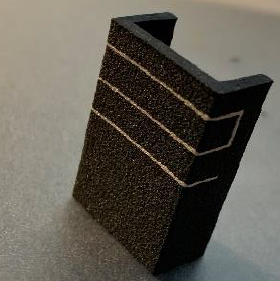
For years, the competences in Additive Manufacturing at FAPS have been bundled in the technology field of the same name, while the technology field MID (Mechatronic Integrated Devices) has focused on research of the LDS method and printed electronics technologies.
Merging these two realms to one new technology field “Additive Mechatronics”, led by Daniel Utsch, the competencies of the Chair in the field of the additive generation of mechatronic functions are united across the various research groups. This platform will be used to employ the high technical diversity at FAPS regarding additive manufacturing technologies as huge potential for interdisciplinary solutions of scientific challenges. Aside from several currently running reserach projects, a considerable number of new projects related to additive technologies is planned.
28.11.2023: Successful completion of project A4I-PE3D: “Additive4Industry – Printed electronics on 3D-substrates”
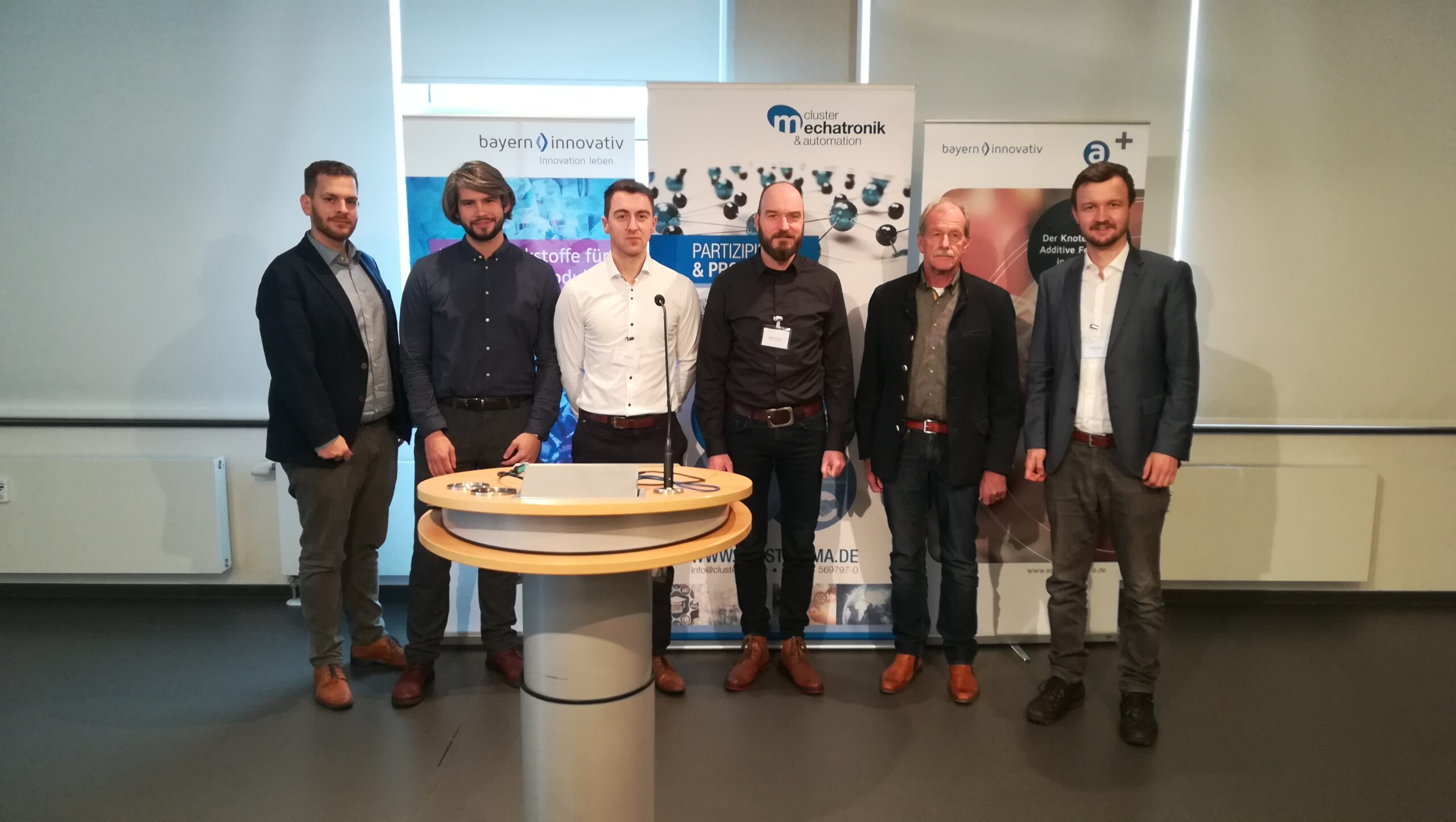
The three-year research project „Additive4Industry – Printed electronics on 3D substrates (A4I/PE3D)”, funded by BMBF (Bundesministerium für Bildung und Forschung) and administered by Projektträger Jülich, investigated additively manufactured ceramic cirucit carriers for electronic assemblies as well as their metallization and qualification.
With rising performance, electronic systems meet also increasing requirements in terms of improved electric isolation and thermal conductivity. At the same time, planar modules reach their limits regarding freedom of design and small lot sizes.
Therefore, the technical consortium (FAPS, Conti Temic microelectronic GmbH, Neotech AMT GmbH and GSB-Wahl GmbH as well as TNO/Holst Centre as associated international partner) investigated the usage of ceramic materials for additive manufacturing of the substrates (mainly alumina and LTCC ceramic). Commercially available functional inks as well as self-made formulations from GSB-Wahl were applied on complex ceramic surfaces using piezojet-printing and were characterized and analyzed extensively.
During the project, organization and numerous valuable networking events were conducted by Cluster mechatronik&automation (Bayern innovativ) und its Dutch pendant Brainport Development.
The results show the potentials of ceramic 3D-substrates for electronic assemblies and their selective metallization. Hence, research in this field is further driven by FAPS, for example in the project, which has started this year, MultiPower.
We express our gratitude towards BMBF and Projektträger Jülich for funding and supporting this project!
07.11.-10.11.2023: FAPS presence at Formnext 2023
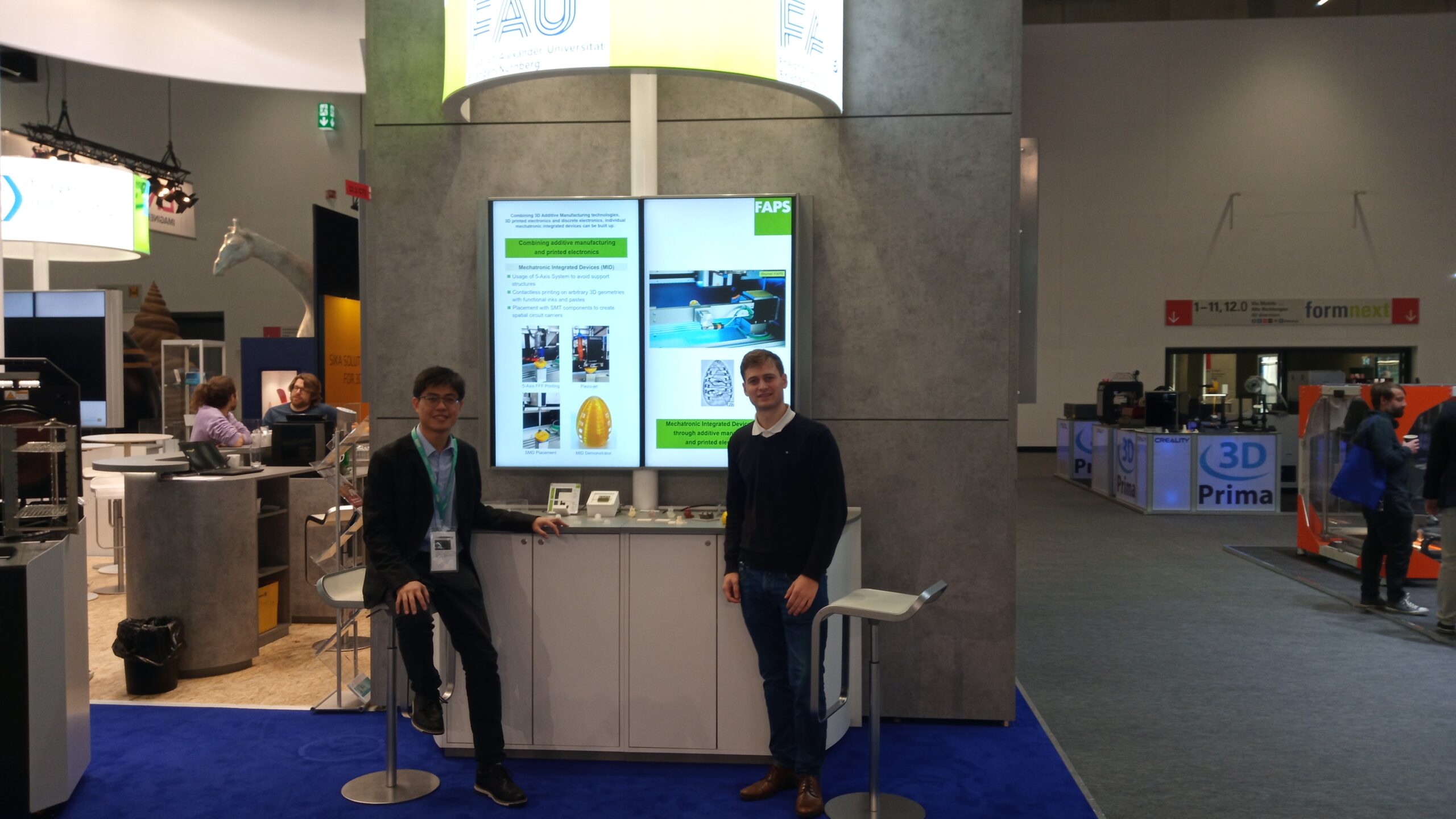
“Formnext” in Frankfurt/Main is an international trade fair for additive manufacturing technologies as well as their pre- and post-processings. More than 800 exhibitors and more than 30.000 visitors from all over the world have met for networking and exchanging information: researchers, users, and enthusiasts. The Technology Field “Additive Manufacturing” of FAPS could also participate and introduce to a broad audience its manifold activities in the field of printing technologies: silicone printing, powder bed fusion, ceramic printing, plasma coating and electrically functionalizing 3D-printed objects. In numerous intensive conversations, many technical issues could be discussed and new contacts have been established.
We are grateful to Bayern Innovativ GmbH for giving us the opportunity to particpate in their joint booth!
26.10.2023: The research project “ARKIDES” wins funding in GreenTech innovation competition
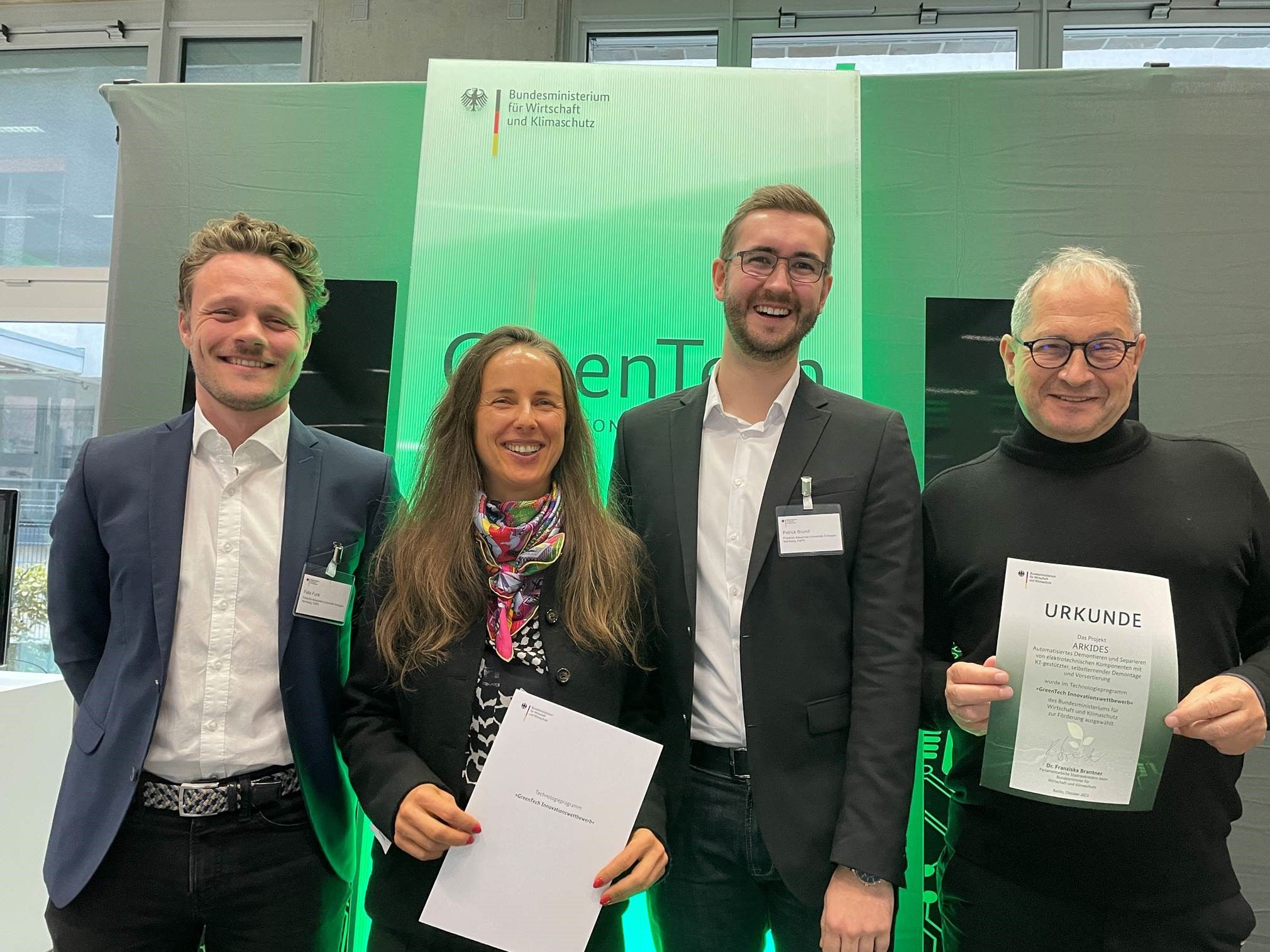
The institute FAPS’ research project “ARKIDES” wins funding as part of the Federal Ministryfor Economic Affairs and Climate Action’s GreenTech Innovation Competition technology programme. ARKIDES was selected as one of seven projects in the “Sustainability through digital technologies” category.
ARKIDES focuses on an innovative approach to the automated disassembly and separation of electronic components with the help of AI-supported, self-learning disassembly and pre-sorting. The institute FAPS supports the scientific side of the project and focusses on the development of an adaptive system for object recognition for the data-based disassembly of control cabinets. The aim of the programme of the Federal Ministry for Economic Affairs and Climate Protection is to strengthen Germany and Europe as a high-tech location for digital technologies and thus make an important contribution to climate protection.
Patrick Bründl and Felix Funk from the signal sector Signalling and Power Networks took part in the launch event, where not only certificates were presented, but also key aspects of digital and innovation policy were discussed. The President of acatech – National Academy of Science and Engineering spoke about technologies to reduce CO2 emissions and the panel discussion looked at the important role of digitalisation in the green transformation.
In addition, specialist topics were discussed in workshops: the potential of digital technologies to reduce greenhouse gas emissions while increasing competitiveness, the economic exploitation of digital-ecological innovations from R&D projects, the advantages for SMEs in the digital-ecological transformation and life cycle assessment as a trigger for sustainable investment and consumer behaviour.
The institute FAPS is looking forward to working together with the project partners Breit Formenbau KG, Mangelberger Elektrotechnik GmbH and E.Braun on digital solutions for a sustainable future.
21.10.2023: FAPS is Visitor Attraction at the Long Night of Science 2023
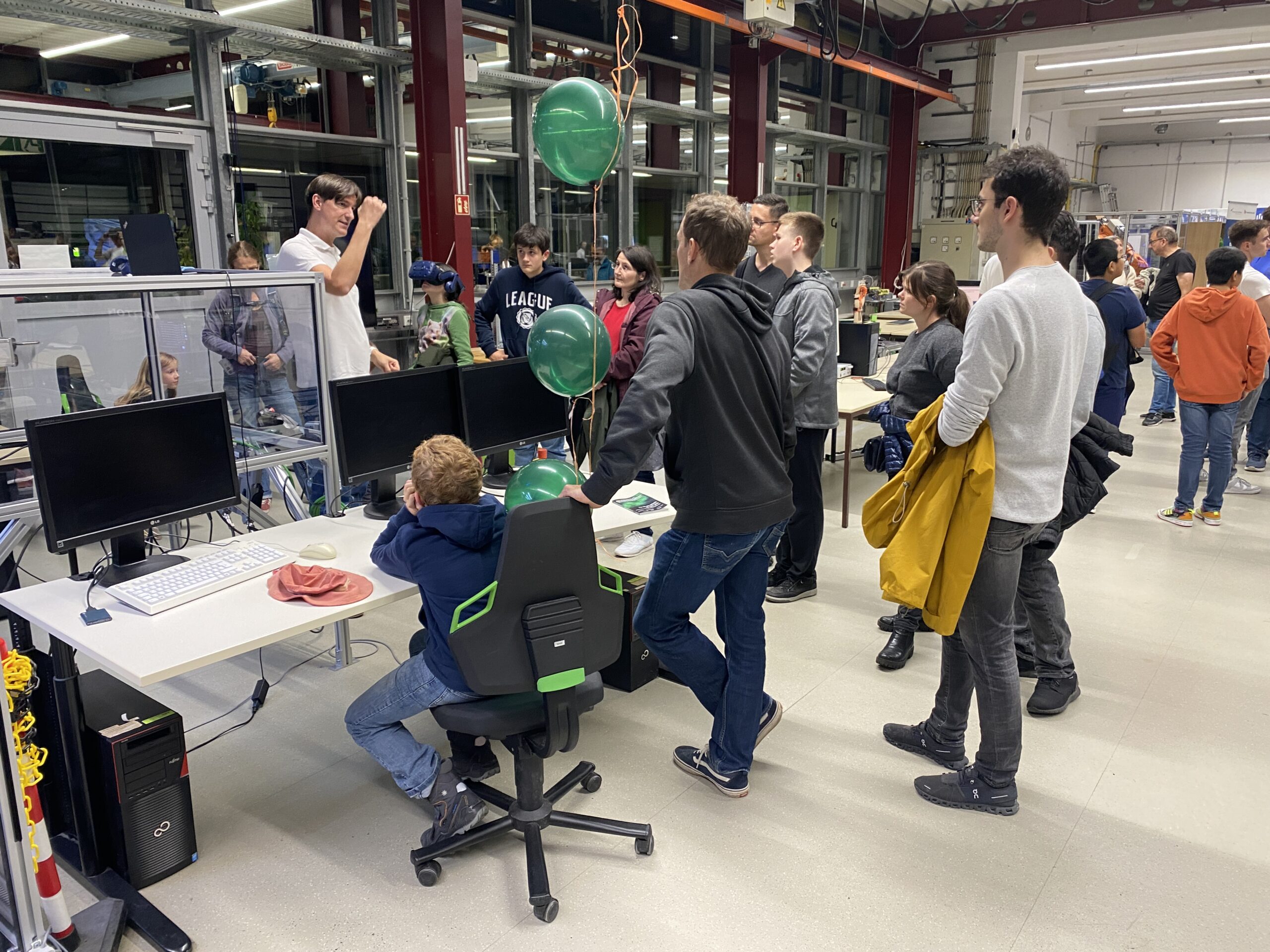
An overwhelming public interest made more than 600 curious visitors flock to the laboratory halls of the Chair of FAPS in Erlangen at the Long Night of Science 2023 on 21 October.
This evening gives us the rare opportunity to present our research to the general public and to get the young and old visitors excited about our topics.
In guided groups, they were able to learn about adaptive assistive systems for the orientation and mobility of visually impaired people in everyday life, VR and AR applications in industrial environments, tensegrity-inspired robots, an energy-autonomous urinary incontinence system to replace the natural sphincter, industrial flying robots and social robots.
The contents were conveyed through illustrative presentations and hands-on activities.
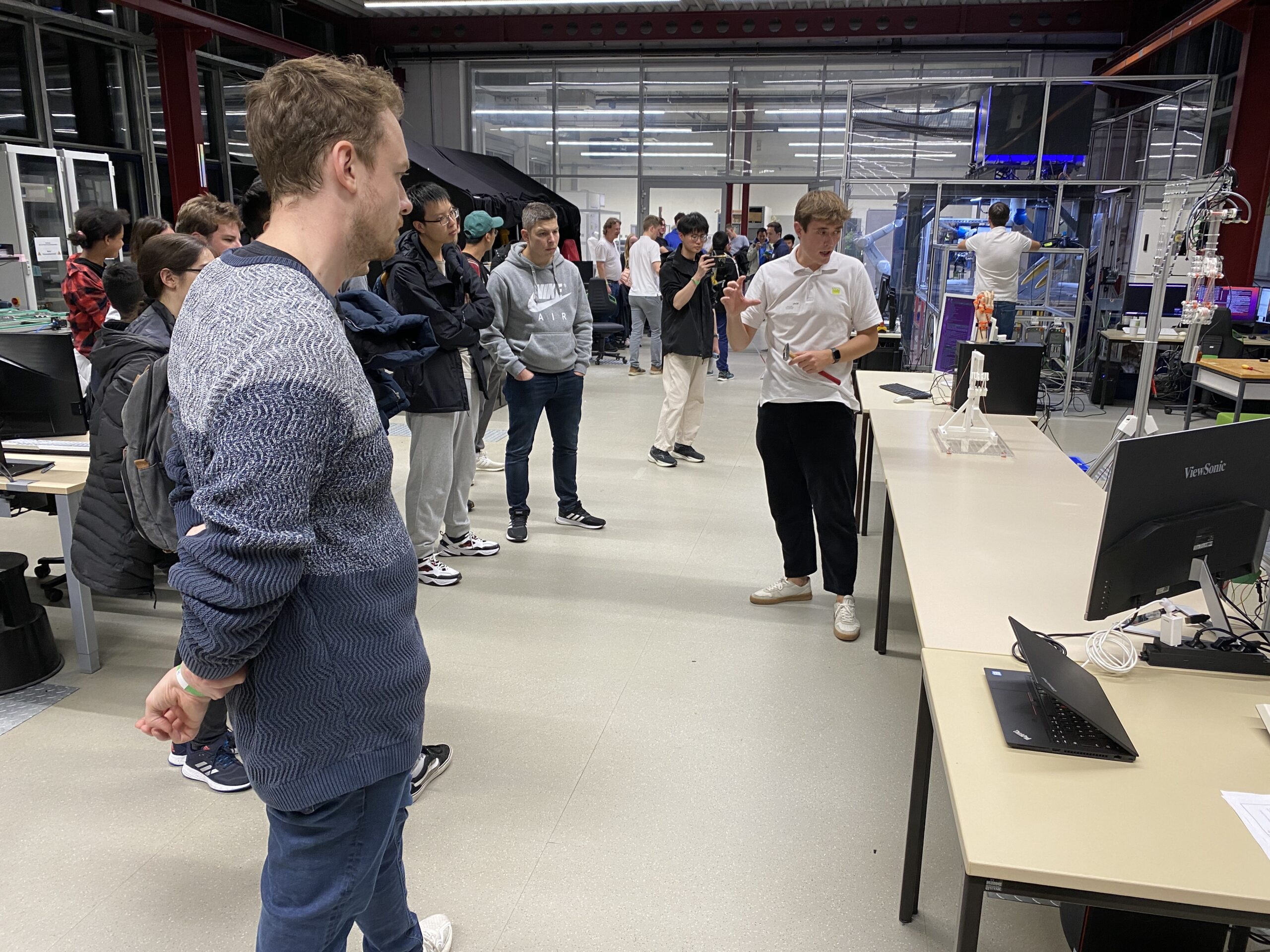 |
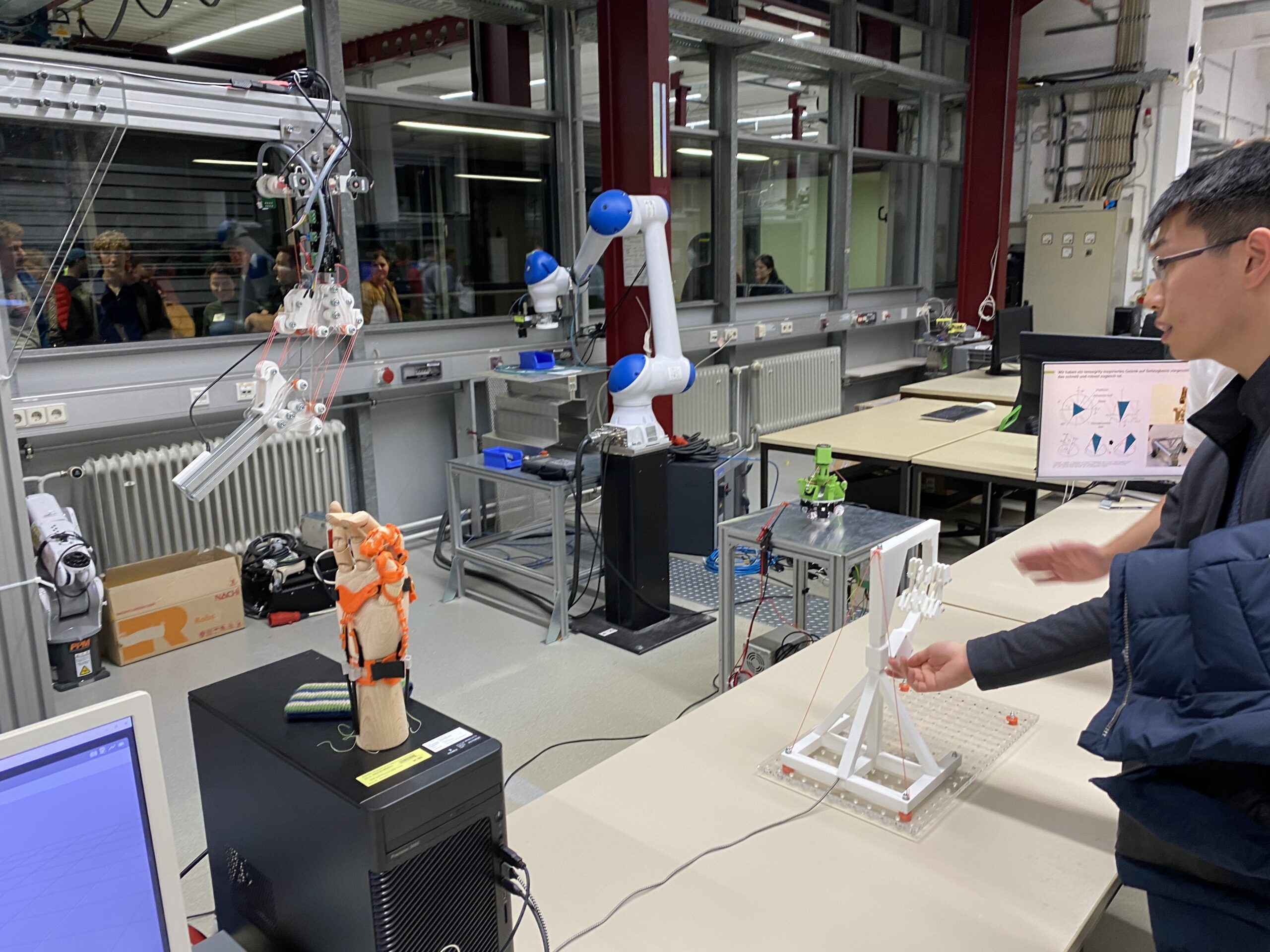 |
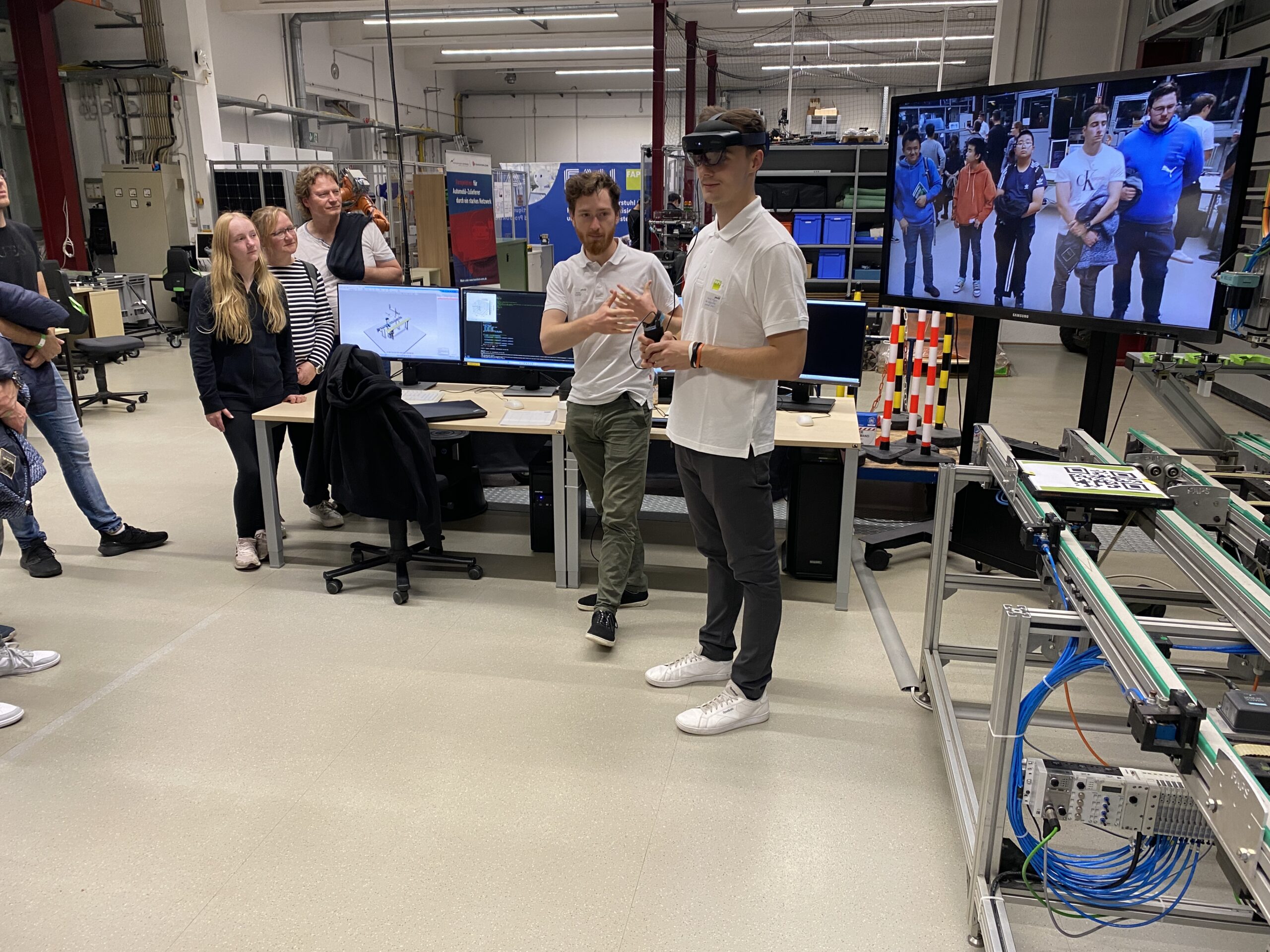 |
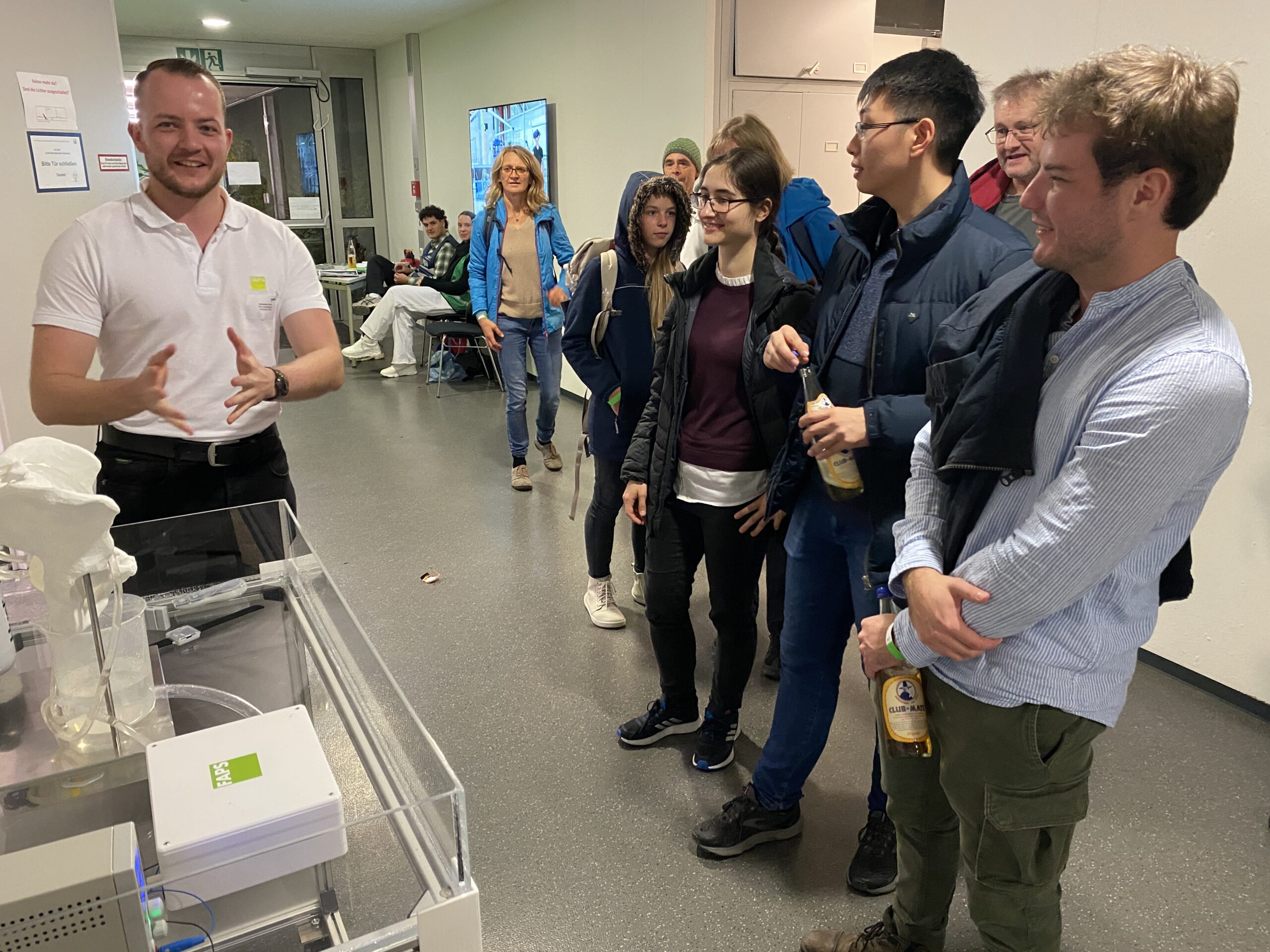 |
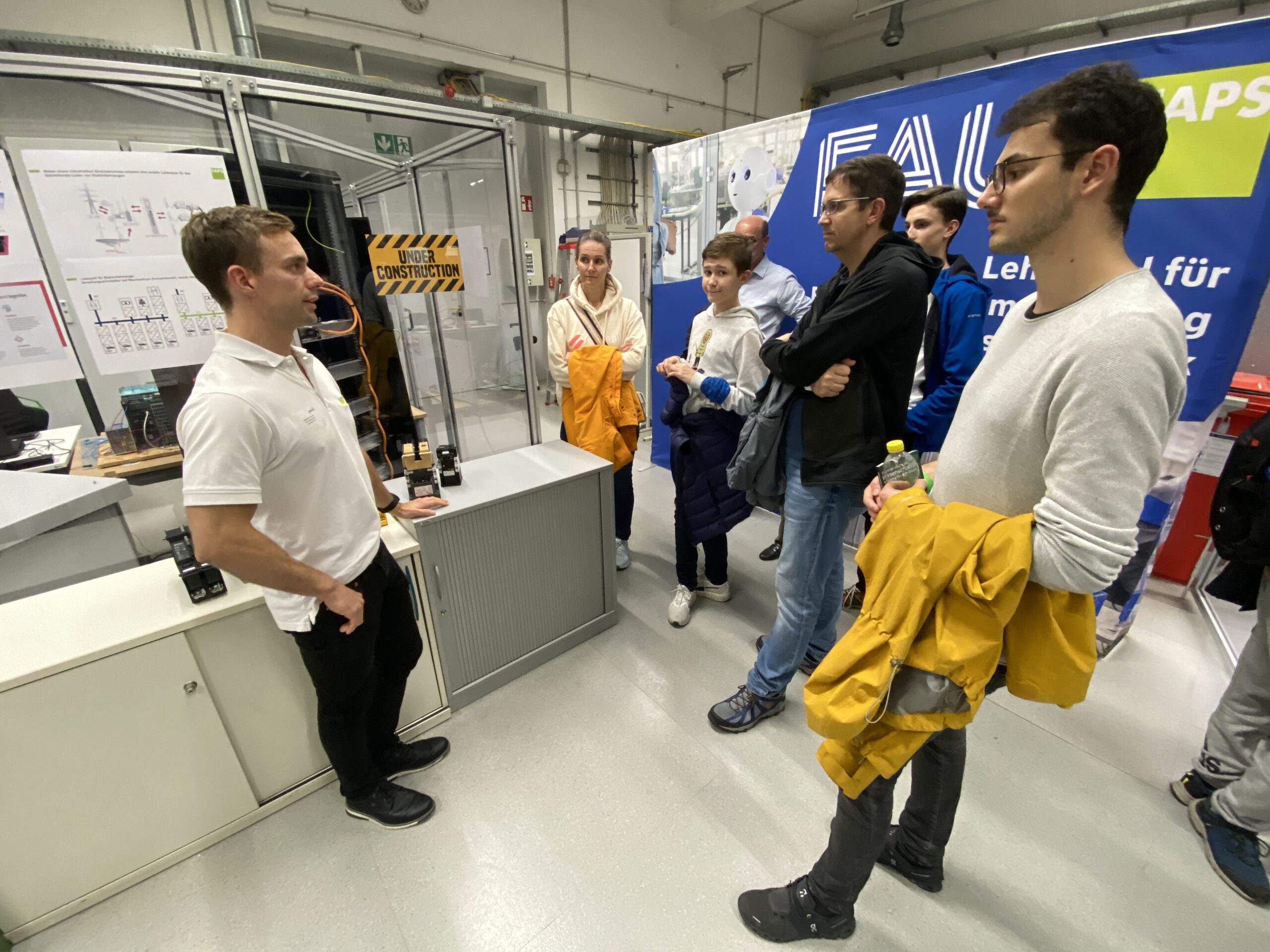 |
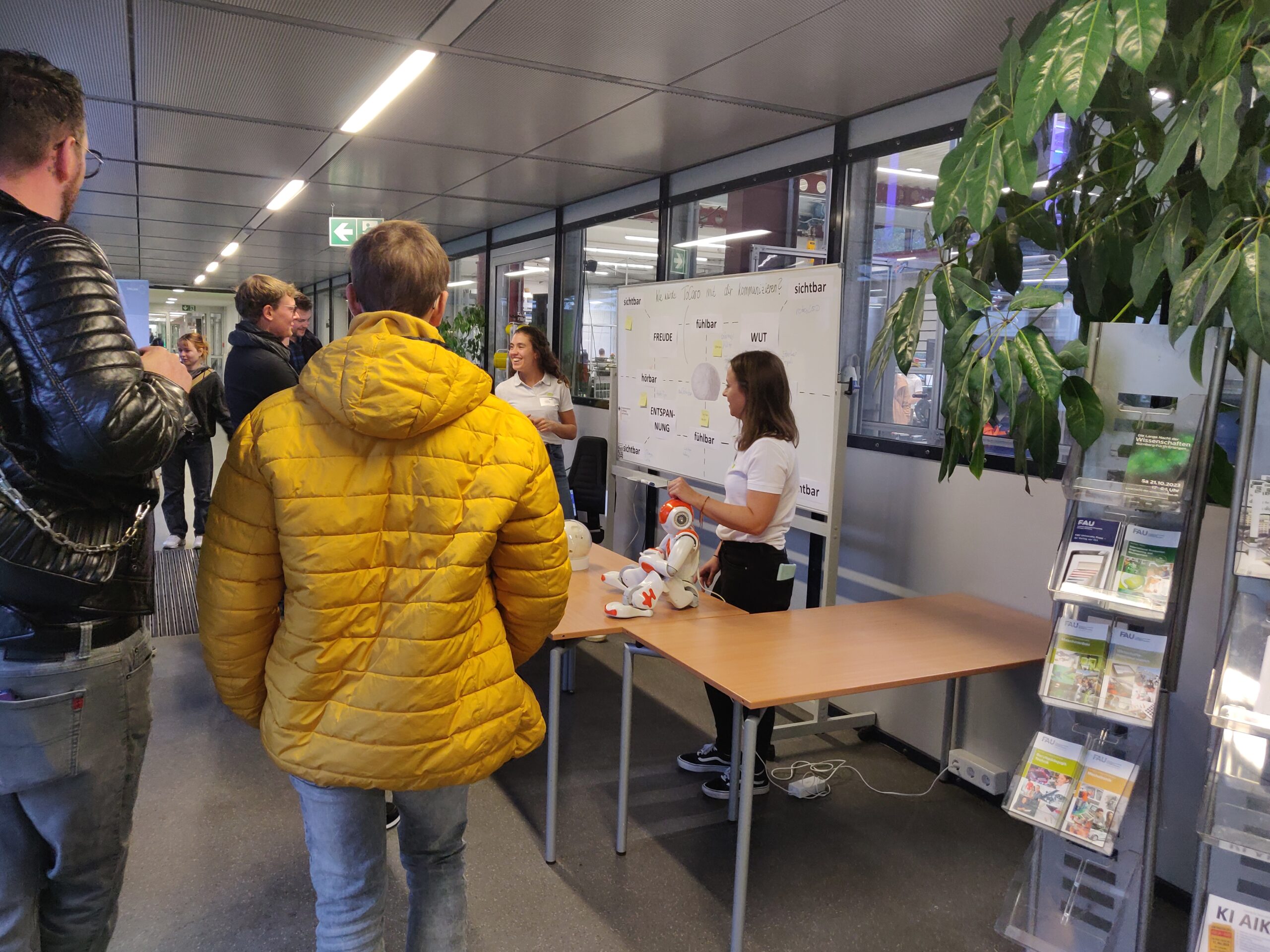 |
16.10.2023: BayStartUP workshop for the promotion of start-ups of FAPS
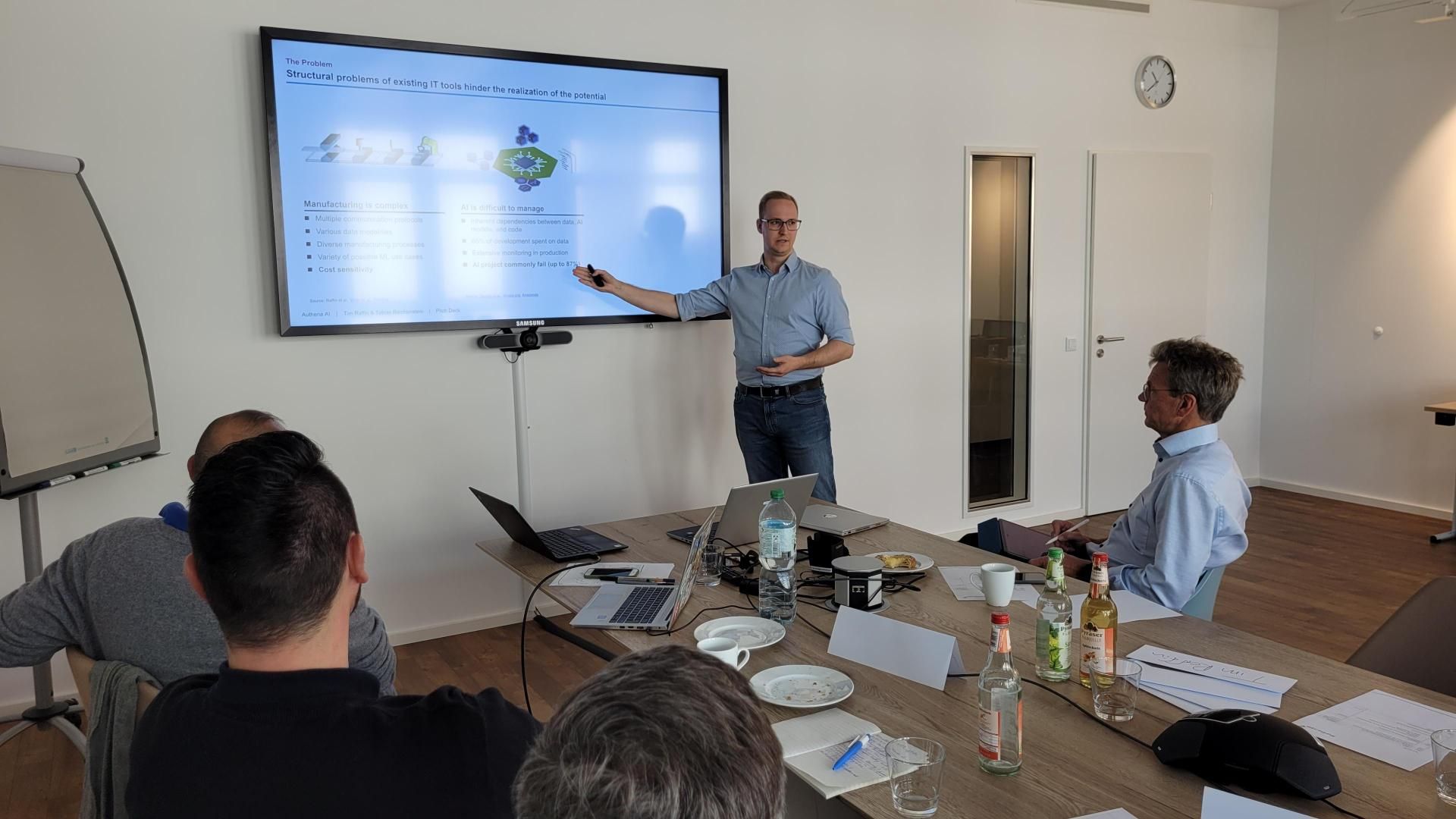
As Germany’s most innovative university, Friedrich-Alexander-Universität Erlangen-Nürnberg (FAU) focuses on transforming research findings into sustainable innovations. A central aspect of this mission is the targeted promotion of start-ups.
In a workshop organized by BayStartUP exclusively for the Chair of FAPS, start-up enthusiasts were able to deepen their knowledge on the topic of spin-offs:
The first part of the workshop offered participants a comprehensive introduction to the diverse financing options for start-ups as well as the specific requirements for venture capital financing or support from business angels. In the afternoon, the focus was on practical topics such as market analysis and business models, which served as preparation for the participants’ own pitches in the second part of the workshop.
The second part of the workshop focused on pitches for potential start-up ideas. Johannes von Lindenfels’ pitch for the existing start-up “immergy” was particularly exciting. Afterwards, the pitches were discussed intensively in the group and valuable feedback was given by the two coaches Prof. Dr.-Ing. Carsten Rudolph and Harald Hubert.
